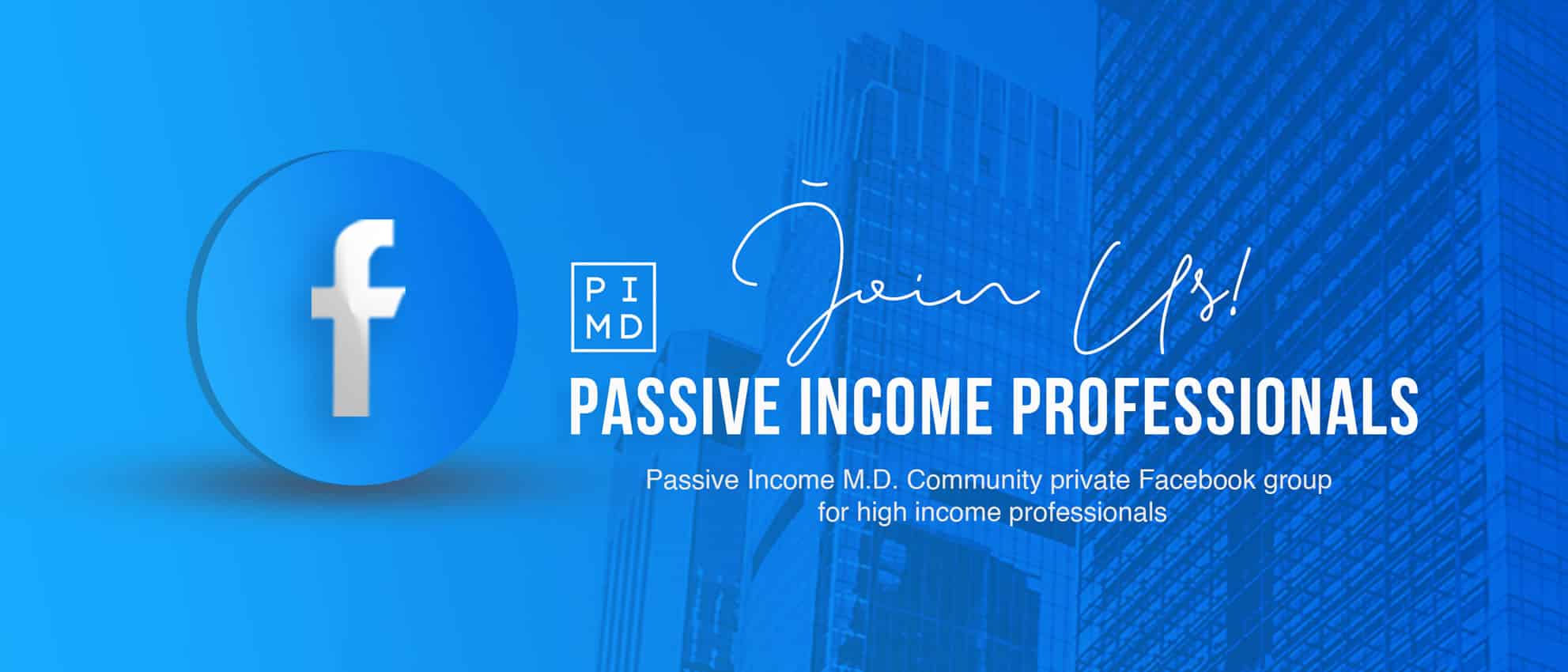
Winning on Both Sides of the Ball
This post may contain links from our sponsors. We provide you with accurate, reliable information. Learn more about how we make money and select our advertising partners.
For the doctor who flirts with living paycheck to paycheck, this post is extremely valuable. Actually, I think everyone will be able to take something away from this.
This Today’s Classic post is republished from The White Coat Investor. The original post can be found here. Enjoy!
I had a doctor mention to me recently that he really couldn’t take a 5% cut in income because he has “a lot of bills.” The doc makes at least twice as much money as the average physician and has been in practice at least twice as long as I have. He clearly has a defense problem.
I also communicate with primary care docs, attorneys, veterinarians, optometrists, and others who owe $200k, $300K, or even more in student loans while looking at incomes in the high five-figure or very low six-figure range, often in a high cost of living area. These doctors have an offense problem.
If you are having financial issues, it might help you to characterize whether you have an offense problem, a defense problem, or both. Then you can concentrate your efforts on where you will get the biggest bang for your buck.
Moving The Ball Down The Field
In football, if you never score, you cannot win. The best you can hope for is a zero-zero tie. Now, I don’t know about you, but I don’t want to have a net worth of zero ever again (yes, I know there are many of you who would love to get back to a net worth of zero.)
If you want to win the game, you’ve got to move the ball down the field and score. In the financial game, that means to earn money. Almost everybody in the world has an income, i.e. an offense, problem. The median income in the world is just $2,920 per person (~$10,000 per household) per year. That doesn’t go very far, especially in any kind of a developed country.
Even in the USA, median household income is around $50,000 per year. The easiest way for someone earning $50,000 a year to become wealthy is to earn more. That might mean going back to school to learn how to do something else, picking up some overtime, getting a second job, sending a spouse to work, or starting a business.
If you are a physician or other high-income professional with an income under $200,000, your main issue is also likely to be an income issue. You might consider doing one of the following:8 Ways to Increase Your Offense as an Employee
- Asking for a raise
- Picking up additional shifts or call
- Changing jobs
- Starting your own practice on the side
- Starting a non-medical business
- Becoming a real estate investor
- Moving into your own practice permanently
- Sending spouse to work/increasing spouse pay
15 Ways to Increase Your Offense as a Practice Owner
- Cutting work-related expenses
- Lengthening hours of operation
- Opening on Saturdays
- Hiring advanced practice providers
- Hiring employee physicians
- Raising rates for direct-pay services
- Moving to a direct-pay model
- Adding ancillary services
- Renegotiating insurance contracts
- Improving payor mix (i.e. stop taking self-pay, Medicaid, and Medicare patients and drop your worst paying insurance plans.)
- Seeing patients faster/more patients in same time period
- Ensuring top-notch coding and billing
- Start a side business
- Pick up some work as an employee on the side
- Sending spouse to work/increasing spouse pay
In short, there are many ways to increase income. If you are losing on the offensive side of the ball, consider which of those methods would be the easiest to implement.
Stop the Bleeding
However, the problem that most doctors have is a defense problem. To put it bluntly, they spend too much money. They “have bills.” Get rid of bills. You would be amazed how much less offense you need if your defense were shored up sufficiently. One field goal wins a football game if your defense is perfect. Think of all “the bills” you have now or may have later and what you can do to reduce them.
A Mortgage
Don’t buy an expensive house. Put 20% or more down. Pay it off early. Move to a smaller house.A Second Mortgage
Don’t buy a second home or pay cash for it.
Timeshare Maintenance Fees
Don’t buy a timeshare. Get rid of the one you have.
Auto Payments
Don’t buy cars on credit.
Student Loan Payments
Pay them off right out of residency.Retirement Savings
Front load them. Minimize investing expenses and maximize returns with a smart investing plan. It’s possible to be done saving for retirement in your 30s or 40s if you hit it hard early.Your Children’s Weddings, Missions, Cars, Summer in Europe
Save them up in advance.
Your Children’s College Costs
Save it up in advance. $10,000 at birth may grow to $10,000 per year of college later. If anyone goes into debt for college, it should be the student. Choose a cheaper school, get scholarships, work during school etc.Your Boat/Airplane Payment
Pay cash or don’t buy it.Your Credit Card Bills
Seriously? You’re a doctor and carry a credit card balance?
Alimony/Child Support
Avoid divorce if at all possible. Negotiate as low of payments as possible. Nothing keeps you from spending more on your kids if you like.Taxes
Learn the tax code. Then take advantage of your knowledge. Do as much saving as possible inside tax-protected accounts- 401(k)s, Backdoor Roth IRAs, HSAs, 529s etc. A less expensive house has a smaller property tax bill. Buying less stuff lowers sales taxes. Working less lowers both income and payroll taxes.Advisory Fees
Learn to do as much as you can yourself. Shop around. Renegotiate fees as appropriate.Charitable Contributions
Give consciously, where you think it will do the most good and in alignment with your values. Don’t be pressured into giving to causes you don’t really feel strongly about.Family Economic Outpatient Care
Give to your family because you want to, not because you have to. Learn to say “no.” Even if your culture is one where some EOC must be given, be sure the amount you’re giving is appropriate.
Private School Tuition
Relocate to an area with good public schools.
Insurance
Insure only against financial catastrophe. Don’t carry more term life or disability than you need. Cancel it when you no longer need it. Don’t buy permanent insurance.
Notice I’m not talking about the usual personal finance stuff. The lattes, the dinners in restaurants, the new car etc. A high-earning physician probably earns enough to pay for the little stuff. If he has a defense problem, it’s probably with the big stuff.
How To Tell You’ve Won
The end game, of course, is financial independence. When you have enough assets or income (they’re interchangeable) that you no longer have to work. However, if you’ve figured out how to make $500K a year while spending $100K a year, then you have my permission to quit working on your offense and your defense.
In the meantime, try to determine how much of your issue is offense, and how much is defense. If defense, go down the list of 17 “bills” I listed above and see how many of them you have. (I have four and plans to eliminate 2 of those 4 within the next few years. I’ve already “right-sized” the other two.)
Disclaimer: The topic presented in this article is provided as general information and for educational purposes. It is not a substitute for professional advice. Accordingly, before taking action, consult with your team of professionals.


